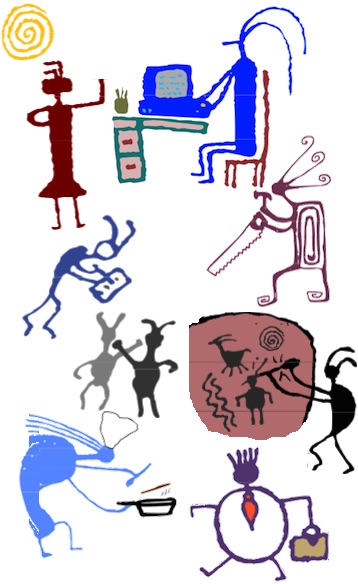Volunteering is promoted as something that will give volunteers significant personal fulfillment, that will make them feel like they’ve made a real difference, that will make volunteers feel like superheros, and on and on. And many people expect their volunteering experience to make them feel like they have changed a person’s life forever, or that it will be so impressive that it will get them a full scholarship for university and into the university they most want to attend, or that it will cure any mental or emotional issue they are facing.
Here’s a tweet that’s a good example of how a lot of people and organizations talk about volunteering:
How volunteering can help you?
- It fixes your mental health.
- It gives you a purpose.
- It kills your self-doubts, anxiety.
- It improves your social skills.
The reality is that volunteering can amplify mental health issues. It can exacerbate self-doubt and anxiety and even loneliness. It can contribute to uncertainty if volunteering doesn’t go well – and very often, volunteering doesn’t always go well. Volunteering can, in fact, leave you feeling like a failure.
I’ve read a litany of online comments from people who tried of volunteer and don’t have the magical, perfect healing experience so many promise. And I so I must ask: are we overselling volunteering?
A recent post to a community for Peace Corps members – and those that wish to be such – reminded me of how not every volunteer gets the feelings so many recruitment messages promise, or how many volunteers don’t have their expectations met. This person has also seen many comments by frustrated Peace Corps members who did not get the amazing experience implied in recruitment messages:
I often come across posts online from returnees talking about how applicants need to expect to accomplish nothing or the bare minimum throughout the 2 years. Why is this? I understand there are complications regarding “making a difference” in some developing countries, but surely the majority of volunteers accomplish fairly impressive things?
And that certainly does happen: you can work as an employee for years at a nonprofit helping to address poverty in one community and never feel like you’ve really made a difference. But now, let’s stick to talking about volunteers (I’ll address the other issue in another blog).
When volunteering disappoints someone, it can lead to disillusionment with volunteering, frustration, even anger. Volunteering activities can also augment a person’s many negative feelings: as I’ve noted elsewhere, volunteering, when it’s not a good experience, can make feelings of depression or failure even worse.
A comment on a recent blog of mine seems to feel similarly about better preparing people for what volunteering really is.
I’d love to see the overarching organizations like state offices of volunteerism Americorps, Points of light, etc. Spread (the) word about (the) basics of being a volunteer. How to be a good volunteer. What to expect.
I agree: these organizations promoting volunteering, encouraging people to volunteer, need to ALSO be telling people that the commitment is REAL, that they need to take it seriously, that if they sign up they need to show up, that most rules that volunteers must follow are there for very good reasons, that training is just as important as the service itself, etc. And they need to make sure people understand that there will be moments of frustration and boredom – and that their volunteer service may be met with hostility from other volunteers, clients and community members.
Absolutely, let recruits know about the benefits of volunteering they could experience. They may, indeed, have a transformative experience. They may get skills that will help them in paid work. They may get knowledge and experience to help them in their career goals. They may see that they really have made a difference in someone’s life. But they also need to be prepared for when volunteering tasks seem boring, or not impactful, or just something to do so they look busy, or not really helping at all. They need to be frequently reminded of the “bigger picture” and how this seemingly unimportant task contributes to the large cause and impacts they may never see firsthand. That will keep volunteers engaged – and keep their expectations in check.
Also see:
- Some people think they aren’t perfect enough to volunteer with you.
- “But I wanted to help POOR people…”
- When some nonprofit employees & volunteers don’t really understand what the nonprofit is trying to address & why.
- Do you welcome people with your language?
- Welcoming immigrants as volunteers at your organization
- “If no one is complaining, we don’t have to change how we do things”
- Recruiting Local Volunteers To Increase Diversity Among the Ranks
- Screening Volunteers for Attitude

If you have benefited from this blog, my other blogs, or other parts of my web site and would like to support the time that went into researching information, developing material, preparing articles, updating pages, etc. (I receive no funding for this work), here is how you can help.


